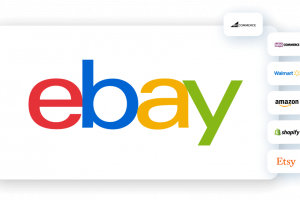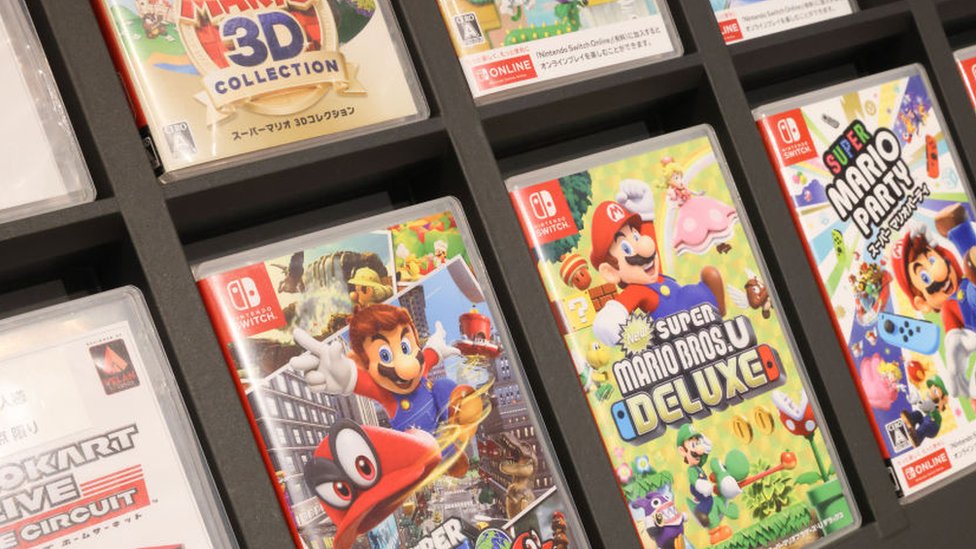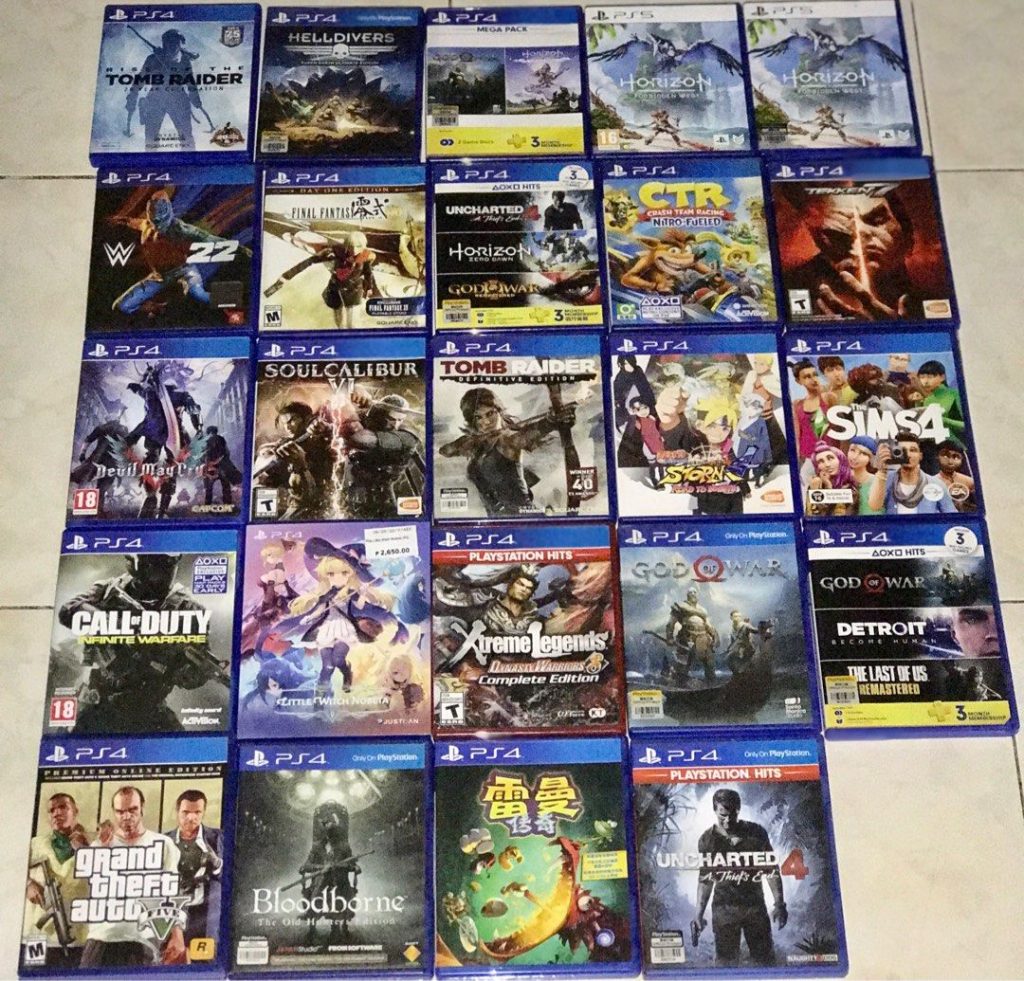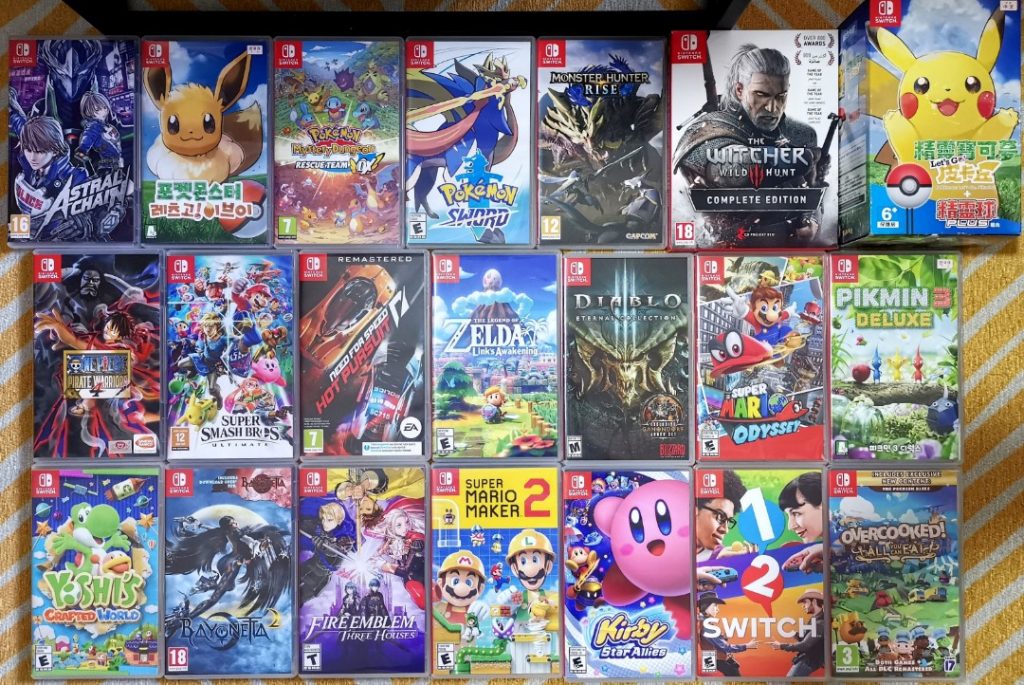Should you sell your used games on eBay, Facebook Marketplace, Amazon, Vinted or Gumtree? Which is best?

Deciding which platform on which to sell your used games can be tricky, as there are several popular options out there, all with different benefits and drawbacks.
In this article we’ll assess the pros and cons of each of the main five options – eBay, Gumtree, Amazon, Vinted and Facebook Marketplace – to help you decide which is best for you.
eBay
The site that started it all, eBay is still a juggernaut of the online selling world. Only Amazon can compete in terms of brand recognition, audience and overall size, so it’s probably the first one you should consider. Here are the pros and cons of selling your games on eBay:
Pros
Reach: eBay’s mantra is ‘sell anything’, and it’s quite true – practically anything you put on eBay will sell. That’ due to the site’s reach – with around 700m visitors to the site each month, eBay’s main draw is that it will provide you with a market.
When it comes to selling games, the reach is also there, with many retail game buyers using eBay as their number 1 spot for picking up titles, as they will almost always be cheaper than buying from any other major retail marketplace, online or offline.
Trust: It’s hard to remember a time when eBay wasn’t round, and that track record has meant they’ve built up a real trust with consumers and sellers alike. They’ve also come a long way from the early PayPal-only days when it comes to payment and receipt of payment, and their payment model now is smooth, trustworthy and easy-to-use.
Slick interface: As well as stearmlining the payment system, everything else about eBay’s UI is refined and intuitive thanks to the decades of experience the team there have. Listing your used videogames is easy and quick – the search functionality for similar items essentially fills out the spec for you, with just photos and description remaining. The photo upload function is great too, allowing you to rotate and edit pics once they’re there.
Discount weekends: Whilst the eBay fees may be hefty on any given regular day, the real trick is to wait for the discount weekends, that seem to happen once every 2-3 weeks. During these events, if you activate the link in the email eBay send you, you’ll get a huge 80% off the commission fees eBay charge. This can be a fair chunk of cash, particularly if you’re selling something bigger like a console, so only selling within these windows is the way to do it.
Introverts rejoice: Unlike several of the other options on this list, eBay is post-only, so you’ll never have to worry about meeting anyone face-to-face with your sales.

Cons
Cost: As mentioned, because they offer so much benefit, eBay do go a bit wild on the commission fees. For videogames, you’re looking at around 12% of the total price (postage included), that is if you don’t wait for the 80% off promotion windows.
Competition: Because it’s the main platform, whilst there is a sea of buyers there are also many more sellers. Make sure you provide plenty of photos, have great descriptions and price your listings sensibly, otherwise your game listings will likely get lost in a sea of similar items.
Postage: The postage-only aspect of eBay is a double-edged sword. On the one hand it means you have nationwide access to the market and you don’t need to meet anyone, but on the other, it costs money. In this guide we tell you how best to save money on postage on eBay, but it’s still an overhead.
Facebook Marketplace
When Facebook launched Marketplace in 2016, it looked like a no-brainer for the company, and has indeed grown to become the number 1 platform for local selling. So what are the downsides of selling your user games on Zuckerberg’s platform? Here are the pros and cons:
Pros
Reach better than competitors: Whilst not on the nationwide level of eBay, Facebook’s local reach is better than any of its competitors. Everyone with a Facebook account (i.e. practically everyone) in theory has access to the Marketplace, and so Facebook didn’t need to worry about getting people to sign up. Some Facebookers will just browse the Marketplace for fun, meaning a lot of potential buyers are available.
Slick interface: It;s not quite eBay levels of slick, but listing your games for sale on Facebook is simple and intuitive.
Pricing: The major upside to selling on FB Marketplace is the lack of fees for doing so. No commission or listing fees, just the option to pay to boost your listing if you’d like it to sit at the top of the ranking. For this reason it’s a no-brainer to list your games on Facebook even if you’re selling them on eBay too – just in case you get a buyer.
Messaging simple: Facebook Marketplace keeps it really simple – if a buyer sees something they want, they message the seller, negotiate a price and go to pick it up. Facebook’s in-built messenger system handles this, which everyone is already comfortable with, so it’s a really friction-less experience. They even keep the Marketplace-related messages separate from your friend messages.

Cons
Competition: There can be a lot of competition for spots on Facebook for sellers, as there are limited ‘spots’ at the top of any search. What’s more, Facebook isn’t very good at moderating sellers, with many sellers using listings with crazy-low prices as essentilly advertisments for a separate online store. You can report these listings, but it doesn’t seem to do much…
Scammers: On the buyer’s side, sadly Facebook is prone to a lot of scam artists that attempt to screw you out of your products and/or cash. One classic tactic is to ask for the item to be shipped, which they’ll then promise to pay for on receipt, and also get you to stump up ‘insurance’ on the postage. If you do sell on Facebook Marketplace, ignore any and all request for postage. Filtering out these scammers can be quite tiresome.
No intermediary payment: A payment system like eBay’s would go a long way in fighting off these sorts of scams. Sadly though, there’s no such service, and you’ll rely on cash-in-hand from any buyer.
Gumtree/Craigslist
The original second hand local option, Gumtree was a real force in the early 2010’s before Facebook Marketplace hit the scene. Its influence has dwindled since, but there are plenty of people still buying and selling there today.
Pros
Cost: Like FB Marketplace, there is absolutely no cost to list your used games. There are optional promotion options which cost, but in general it’s a free service.
Local: There’s a real plus side to the local aspect, in that you’ll likely see very little competition for the games you’re selling within your area. You’re obviously relying on there being someone who wants to buy them, which will also be diminished, but being local will help your listing stand out regardless.
No postage: Because everything is done cash-in-hand, you don’t need to worry about postage and packaging for your sales, which can eat into profits on sites like eBay and Amazon.
Cons
Reach: The reach on Gumtree these days is poor, and not just because of the local aspect. Sinc ethe dawn of FB Marketplace, overall traffic to sites like Gumtree have really diminished, meaning finding a seller for your used games can be really tricky, especially if you live outside a busy metro area.
Interface not great: Gutree really hasn’t moved with the times when it comes to its UI. There’s no photo editor, and no suggested descriptions from similar items. It’s all a bit 2008.
Cumbersome messaging: Unlike Facebook, you have to create your own account, and the messaging system is a bit odd – it seems to flit between email and Gumtree messages, and the notifications seem rather inconsistent.
Searchability: Again, unlike its Silicon Valley-backed competitors, Gumtree’s search funcitonality isn’t quite up to speed. It’s unclear why some items don’t appear for certain search terms, and there are no sophisticated Google-esque search tools you can use.
Amazon
Amazon is obviously the biggest retail website in the world, with a staggering 2.5 billion visitors each month. When they allowed people to sell their own products through the site, it opened a huge window of opportunity for people lookng to sell their used items, including videogames.
Pros
Reach: The big benefit with amazon is the aforementioned market size, being the biggest in the world. If there’s someone out there looking for what you’re selling, it’s likely they’ll search for it on Amazon first.
Flat cost: The big difference between Amazon and ebay is that Amazon charge a flat cost per item sold, (as well as a £25 monthly fee), just £0.99. This means there’s no greater price to pay for a more expensive item – you’ll pay 99p whether you sell a £10 game or a £400 console. If you’re selling a lot, you can just pay £39.99 per month for unlimited sales too.
Interface: It’s second only to eBay in terms of its intuitive and easy-to-use design, making getting your used games available online a breeze.

Cons
Competition: If you’ve ever searched for any product on Amaozn, you’ll likely have bought one of the first few that appeared in the search. Getting to the top of Amazon’s list, or indeed becoming the coveted ‘Amazon’s choice’ item, is a real challenge, and may require years of grind to get the good reviews and track record that Amazon want. If you’re only selling a few used games, better stick to the other options on this list.
Vinted
Founded way back in 2008 in Lithuania, Vinted has become the major competitor to eBay, fusing the eBay auction model with the cosy craft-like vibes of Etsy. The big differentiator of Vinted is that it passes the commission of sale onto the customer rather than the seller, frmaing it as ‘buyer’s insurance’.
Pros
Cost: As mentioned, the real appeal of Vinted is the cost to the seller. With the commission passed to the customer, it’s easy to see why many prefer Vinted over eBay when it comes to selling.
Interface: The UI for uploading your products is excellent, and generally the whole Vinted shopping experience is much warmer and cosier than eBay’s more brualist pragmatic approach. The whole site feels more casually browsable than eBay, meaning customers are more likely to stumble upon your product.
Competition: Vinted is far less popular than eBay, meaning there is less competition for your products. If you list a game, it’s unlikely there will be many others on Vinted doing the same, and with a global audience this feels like a good opportunity.
Secure payment: Vinted has copied eBay’s model as serving as the middle-man between buyer and seller, giving a layer of security and reassurance to both parties.
Cons
Audience: Vinted has 20 million visitors per month, which is orders of magnitude less than eBay or Amazon. Whilst there is less selling competition, the decreased audience means you won’t always guarnatee a sale of your used games.
Conclusion
It’s never been easier to sell your used games online, with the above options and more giving you a wealth of opportunity to find a buyer.
Taking everything into account, eBay still offers the best option if you’re only selling a few of your older items, or if you don’t see yourself selling all that much in future. If you’re looking to create more of an enterprise, I’d go with Amazon, as the cost associated is much more favourable, and it seems more set up to accommodate small businesses. If you do go with eBay, make sure you only list during the discount periods, and in the gaps in between it’s worth listing on Gumtree in case you do get that keen local buyer.